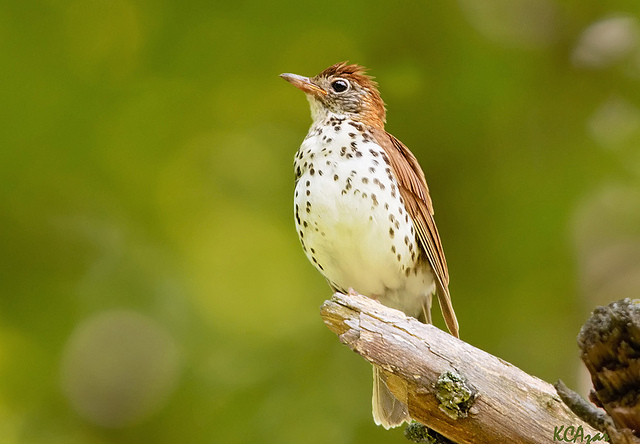Writing sound: Thoreau and the Wood Thrush

We often find inspiration for tweeting sounds from the Acoustic Atlas in the words of poets, authors, and naturalists. Take, for example, this oft-noted description of the Wood Thrush (Hylocichla mustelina) by Henry David Thoreau:
I admire the moderation of this master. There is nothing tumultuous in his song. He launches forth one strain with all his heart and life and soul; a pure and unmatchable melody and then he pauses and gives the hearer and himself time to digest this. And then another and another at suitable intervals.
Listen to the Wood Thrush
Thoreau’s description captures the cadence and honesty of the Wood Thrush’s refrain. His admiration for this bird extends beyond his apt observations:
This is the only bird whose note affects me like music, affects the flow and tenor of my thought, my fancy and imagination. It lifts and exhilarates me. It is inspiring. It is a medicative draught to my soul. It is an elixir to my eyes and a fountain of youth to all my senses. It changes all hours to an eternal morning…I long for wildness, a nature which I cannot put my foot through, woods where the wood thrush forever sings, where the hours are early morning ones, and there is dew on the grass, and the day is forever unproved, where I might have a fertile unknown for a soil about me.
What species – or soundscape – is your Wood Thrush? Find your “ranz des vaches” at acousticatlas.org.
We first heard Thoreau’s quotations on the Wood Thrush from Radio Open Source’s show “The Art of Wildness”. Source for Thoreau’s quotations: The Writings of Henry David Thoreau: Journal, edited by Bradford Torrey. Image source: “Wood Thrush” by Kelly Colgan Azar used in accordance with CC BY-ND 2.0. Audio file copyright 2014, Kevin Colver. All rights reserved.
